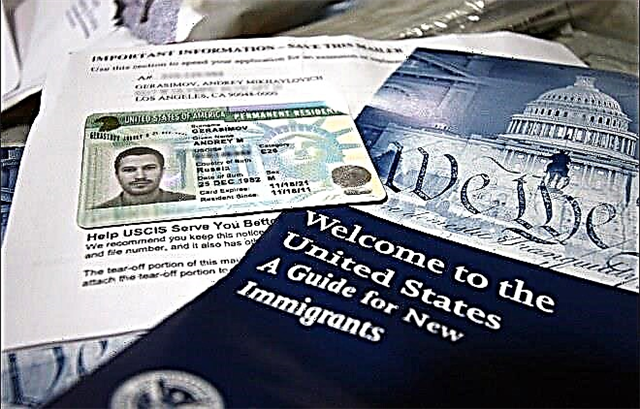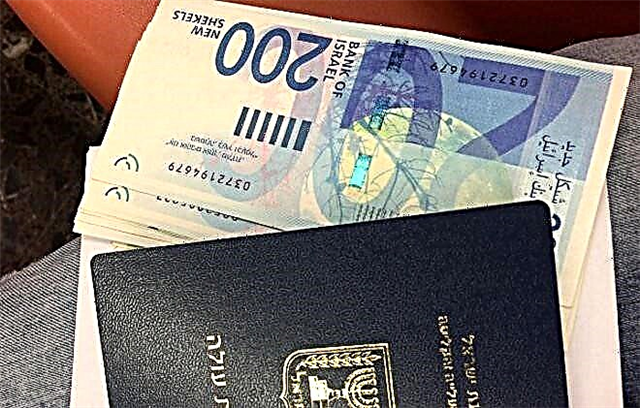The Israeli state is one of the few in the world that has a strong support program for immigrants based on their origin. Benefits and allowances for returnees in 2021 in Israel can greatly facilitate the adaptation process. But not everyone knows how much and who exactly can count on help. If you approach the issue competently, then you can feel the benefits of state support already in the first days after the move.

Life of repatriates after moving
The law on the return of Jews to their original homeland was passed in 1950. According to this document, children and grandchildren of persons of Jewish nationality who can prove their Jewish roots with documents can take part in the resettlement program.
Repatriation to Israel is possible with the passage of the so-called conversion procedure - conversion to Judaism. Of course, no one can force a candidate and his relatives to change their faith. But those who profess a different religion run the risk of not getting into the program.
The procedure for confirming the origin is under the supervision of the rabbinical court, which exists in every state where Jews live. If the court's decision is positive, the candidate becomes a repatriate and can count on all the benefits for new immigrants in Israel. If it turns out to be negative, you will have to choose a different path of emigration. In this case, the process will begin with obtaining a residence permit, then permanent residence, and only after that - citizenship.
The conversion procedure is described in detail in the article: "Conversion: what is it and how to go through it in 2021".
The resettlement of Jews from the Russian Federation, Ukraine and other countries to the Promised Land is called "aliyah". Hence the name of the Ministry of Aliyah and Absorption (Repatriation).
State support programs
Considering that spending on social protection of the population has reached an impressive size in the country's budget, the authorities decided to reduce the list of benefits by about 5% and tighten requirements for candidates. Such measures have led to a decrease in the size of payments for many categories.
In this situation, repatriates have the opportunity to receive enough additional money (starting from a free air ticket and payments from the repatriate's basket and ending with help from the Ministry of Aliyah and Absorption and salary supplements) or enjoy benefits for education, payment of taxes and obtaining a cheap loan for the purchase of social housing.
Let's try to find out how to survive on welfare in Israel and whether the repatriates have a chance to stay in the country.
What is an absorption basket
In Hebrew, this type of help is called "sal klita". It is received by repatriates at the initial stage of resettlement and until the final integration into a new life.
To begin with, the candidate receives from the Israeli agency "Sokhnut" a free air ticket and a receipt for additional baggage. The above-mentioned ministry is responsible for the payments themselves.
In the Israeli budget for 2021, it was proposed not to provide the absorption basket to those whose property is valued at more than 500 thousand shekels. Returnees who sold property and real estate in their homeland to buy housing in Israel, and brought with them no more than a third of the cost of an apartment in the country, will be left without an absorption basket.
This will noticeably affect single returnees, who receive 35,000 shekels for the entire payment period (for a married couple, this amount is 60,000 shekels).
The basket of a repatriate in Israel is a kind of gratuitous gift from the state to new members of the Israeli society. Basic conditions:
- total stay in Israeli territory for two years out of the last three, which preceded the receipt of repatriate status.
- the repatriate came to the country for the first time on the appropriate visa.
The amount of the payment depends on the following factors:
- whether the candidate is a pensioner;
- emigrates alone or with family;
- whether he has children.
The basket is divided into two payouts. The first is issued in two payments:
- part - at the airport in cash - 1250 shekels ($ 313);
- the second part is later transferred to a bank account - 1430 shekels ($ 358). To conclude an agreement with a bank, you need to contact a financial institution in the first days of your stay in the country.
Subsequent payments for the absorption basket are made in six installments, each for NIS 2,622 ($ 656). You can get them within a year.
If the beneficiary leaves the state, payments are stopped. It will be possible to restore them only after returning and only during the first 12 months of emigration.
After all payments are made, the Ministry of Construction will continue to pay the allowance for the next 4 years.
The size of the subsidy for repatriates in Israel in this article is indicated on the basis of one person who is not of retirement age.
Subsistence benefit
If the absorption basket is paid in full, but the repatriate is still unemployed, he is entitled to assistance from the Ministry of Aliyah and Absorption, which provides him with a living wage.

The amount of the benefit is set on an individual basis and depends on a number of circumstances:
- availability of other income;
- being married;
- the presence of children.
So, for example, benefits in Israel for repatriates, when it comes to unmarried women aged 20-25, who are registered at the Employment Center, are laid in the amount of 1384 shekels ($ 346).
This type of payment is not provided automatically. To obtain them, you should submit an application to the adviser of the ministry and submit documents.
Salary supplements
The wage supplement is provided for migrant workers during the first year of their stay in the country. The only condition is that the total income for a family must not exceed the minimum threshold provided by law.
Today, the minimum wage in Israel is 5,300 shekels ($ 1,483). The average wage in the country reaches 10,073 shekels ($ 2,817).
The salary depends on the employee's age (up to 18 or older), payment scheme, locality and specialty. The most in demand in the country are programmers, workers at factories for the manufacture of various kinds of structures, doctors.
Assistance to certain segments of the population
The category of persons in need of assistance includes:
- disabled people;
- pregnant women;
- single mothers with children up to 7 years old;
- repatriates of pre-retirement age;
- other citizens who are unable to work due to health, age or marital status.
The old age benefit in Israel for repatriates in 2021, like for other citizens, has nothing to do with retirement benefits. It is issued to persons who were recognized as pensioners in their country, but did not manage to work on Israeli territory for 10 years, and moved before they turned 60. The amount of the payment must exceed the subsistence level of 1,384 shekels ($ 384).
Pensions in Israel for emigrants from Russia and other countries are fully available only if they arrived in the country 10 years before they reached retirement age and were employed all this time. Those who have not had time to work out such an experience will be entitled to a funded pension, the amount of which usually does not exceed the old-age benefit. But those who have worked in the country for about 30 years will receive 6,000 shekels ($ 1,500).
Regardless of what the size of the pension will be, benefits for elderly repatriates in Israel are provided on an equal basis with other citizens.They can count on the following discounts:
- payment for using television - 50%;
- travel in public transport - 50%;
- rental housing or property tax (if there is only one apartment) - 50%;
- medicines from the “social basket” - 75%;
- attending a variety of cultural events - 50%.
Particular attention is paid to the disabled. If the housewife has lost up to 75% of her legal capacity, the amount of assistance will be 2,400 shekels ($ 671).
Help for the unemployed
If a person loses his job for reasons that did not depend on him, he too may receive an allowance, which will be paid until he is employed again. Men under 65 and women under 50 can count on such assistance. To do this, you need to confirm that the currently unemployed person has worked at the enterprise for at least 5 months.
To receive payments, you need to register with the employment service. In case of refusal from the offered vacant job, unemployment payments are temporarily suspended. It will be possible to submit a new application only after 3 months.
A person who is under 35 years of age and has a low salary is also subject to unemployment benefits. If the employee quit voluntarily, the allowance will be paid to him only for three months.
Demobilized soldiers or persons over 45 years of age are entitled to provision for six months. The amount of the allowance ranges from 48-80% of the salary (only the last 2.5 months of work experience are taken into account).
A woman who, after 60 years, left work on her own initiative, will not be able to receive help.
Additional one-time help
In some cases, additional payments are made to repatriates in Israel in 2021. For example, refugees who are resettled from disaster areas are entitled to additional one-time assistance.
In addition, the Israeli authorities are very active in implementing a program to populate areas with a small number of residents. Expatriates who decide to settle in such regions receive a one-time payment to cover the costs of moving and a monthly allowance for the first time. This project is very similar to the Russian program "Compatriot".
Education benefits
The state strongly supports those who want to study in their new homeland. But the question would be more correct not about how much money is given to repatriates in Israel for study, but what discount is valid for them.
Learning Hebrew
Newcomers get the opportunity to learn the language in special courses called ulpan. In addition to obtaining basic linguistic knowledge, they are given the opportunity to get acquainted with the culture, traditions, history, socio-economic structure of the state.

If the repatriate does not know the language, he studies at the first stage - "Aleph". If he has certain knowledge, he is given the opportunity to choose the appropriate program.
Emigrants can take courses within 1.5 years from the date of arrival in the country. Most often, the process takes about 5 months (25 hours per week).
Professional ulpans are provided for workers with higher education. There are also courses for disabled people, retirees, students and children.
Benefits for pupils and students
Students of higher educational institutions are paid by the state, provided that the educational institution is accredited and recognized by the Ministry of Aliyah. The application must be submitted within 36 months after the status of the repatriate was received.
A special “basket” is provided for schoolchildren, which is transferred by the state to the school. It covers the cost of buying textbooks, cultural events and excursions. Students can take advantage of additional activities to compensate for the backlog in the program.
For repatriates with children, the state partially compensates for the costs of kindergartens, if the mother is registered at the employment center, and the attendance of the preschool institution will be at least 24 hours a week.
Tax incentives
Tax breaks for immigrants in Israel are provided at different stages of life in the country. The first thing the state does for them is to abolish the customs duty on the import of household appliances, personal belongings, cars and furniture. Secondly, expats have the opportunity to purchase a car with a 50% discount on all types of taxes, including VAT. This advantage remains valid for three years from the date of obtaining the status.
Income tax in Israel is levied on a progressive scale. The minimum payment is 10%, the maximum is 50%.
New immigrants are partially exempted from this type of tax. The exemption is valid for 3.5 years only. In addition, they do not pay taxes on profits they earn abroad for 10 years.
In the presence of foreign currency accounts, the state exempts from paying income tax on these deposits for 20 years. The main thing is that the initial amount of such capital is accumulated outside Israel, and the account is opened with an Israeli bank. In this case, the returnee will be eligible for tax benefits on the profits from these deposits.
Other types of assistance
An important component of all the assistance provided by the state is social housing in Israel for repatriates. A loan is available to an emigrant, which he can use for 10 years after entering the country.
This payment includes a principal and a contingent grant. The first part is allocated at 4% per annum for 20-28 years. The second is the payment to the bank of the fifteenth share of the amount provided once a year for 15 years. If during this period the apartment remains in the property of the emigrant, the loan becomes a gift and there is no need to return it to the state. When selling a home, the rest of the amount will have to be returned in full, taking into account inflation and 2% per annum.
The first year of life in the country, a repatriate can drive a vehicle on the basis of the rights obtained in his home state. After that, he has 3 years to get an Israeli driver's license (he will only need to take driving practice). If you have experience of 5 years or more, the driver can exchange a license for an Israeli one.
Each emigrant can take advantage of an individual employment program, taking into account professional skills and education. But in Israel, many specialists need to get a license in order to get the right to work in their profession. These specialists include teachers, psychologists, dentists, lawyers, doctors.
With regard to health insurance, all expats automatically receive policies, regardless of age or health status. For the first six months, they do not pay the tax for the use of medical services. If the repatriate has not found a job during this time, the benefit is extended for another 6 months.
Outcomes
The program of repatriation to the Israeli state provides for various types of assistance to its participants. Support can be obtained at different stages of life in the country, from the absorption basket provided for adaptation, to assistance in buying a home and finding a job.











